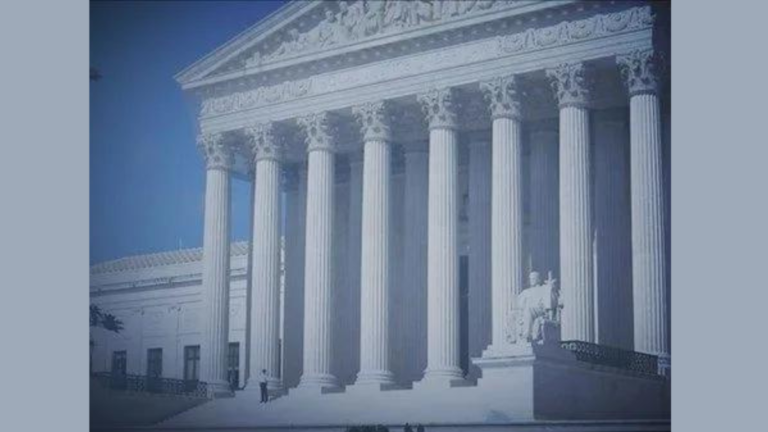
By Dr. Luke Tripp
The Indian Child Welfare Act is being challenged by prospective non-Indian adoptive parents and the state of Texas before the United States Supreme Court (ICWA). The International Covenant on the Rights of the Child (1978) sought to put an end to generations of state policies that denied tribal sovereignty and forcibly removed Native children from their tribes. The goal of ICWA is to provide protections to children based on tribal citizenship rather than race. Authorities, on the other hand, routinely dismiss the requirement that “Indian” be treated as a citizenship category.
Instead, they regard them as a racial group, despite the fact that the law defines a “Indian child” as someone who belongs to or is eligible for membership in a federally recognized tribe.
According to the ICWA, government actors must treat “Indian” as a citizenship category whose boundaries are determined by self-governing Native nations. It has been praised for being a powerful declaration of tribal self-determination.
In response to persistent tribal activism, Congress enacted the ICWA. Tribal activists exposed Indian child removal practises to the public in the 1960s and 1970s. Following extensive hearings, Congress passed the law to put an end to generations of racialized policies that forcibly removed 25% to 35% of American Indian children from their communities, handing them over to White families and institutions for assimilation.
The children were placed in institutions or families with no tribal ties by agencies. American Indians argued that federal policy should recognize tribes’ unique, sovereign status and allow tribes to take jurisdiction over child welfare cases involving their eligible members.
More than 500 Indian tribes see this case as a launching pad for other cases challenging Indian rights to land, water, oil, minerals, and lucrative gaming rights.
The court action
The ICWA is being challenged in court by the State of Texas and several White families. Texas claims that the ICWA infringes on state sovereignty, while the families argue that it is an unconstitutional racial classification. According to a lawyer for the families, the ICWA categorizes children based on whether they are Indian or not, and then it categorizes prospective parents based on whether they are Indian.
In October 2018, Federal District Court Judge Reed O’Connor ruled that parts of the law were unconstitutional because they mandated racial preference. The United States Court of Appeals for the Fifth Circuit stayed O’Connor’s judgement in December 2018, ruling that it violated tribal sovereignty. The court ruled on August 9, 2019, that the law does not violate equal protection. The court voted to rehear the case on November 7, 2019. The ICWA is still in effect.
The constitutional status of tribes
According to sociologist Hana Brown (2020), ICWA is a critical piece of federal Indian legislation. Despite tribes’ constitutional status as sovereign political entities, she claims that the US government treated tribes as domestic rather than foreign entities, and engaged in campaigns to decimate tribes and assimilate indigenous people. She revealed that the US government pursued campaigns portraying American Indians as racial minorities with pathological cultures, relying on racial ideologies to justify urban relocation programs, forced purification of Native women, and other enterprises designed to undermine, if not destroy, tribal sovereignty and facilitate the federal government’s seizure of Native lands.
Removal of Indian children and racialization
According to Brown (2020), Indian boarding schools and child removals were part of a larger US effort to undermine tribal sovereignty and facilitate the seizure of indigenous resources. She discovered that when implementing ICWA, administrative and legal authorities routinely racialize American Indians and reconsolidate the racial order. In deciding which populations constitute races or how to racially classify an individual, state agents use the racial ideology that best serves their interests, not the interests of the racialized group.
She believes that the terms “citizenship” and “race” are both political constructs used to divide populations and justify unequal distribution of rights and resources.
The Supreme Court uses the race card against people of colour
The Indian Child Welfare Act was fought for by American Indian tribes to protect Indian parental rights, tribal rights, and tribal sovereignty. It was enacted to protect the tribe from depopulation and resource depletion.
Texas and others are working to weaken or repeal the Indian Child Welfare Act. If the Supreme Court rules that the Act is unconstitutional, Indians’ political gains will be undermined, and right-wing political groups will be emboldened to use race as a weapon against anti-racist policies such as affirmative action.
Dr. Luke Tripp is a St. Cloud State University professor.